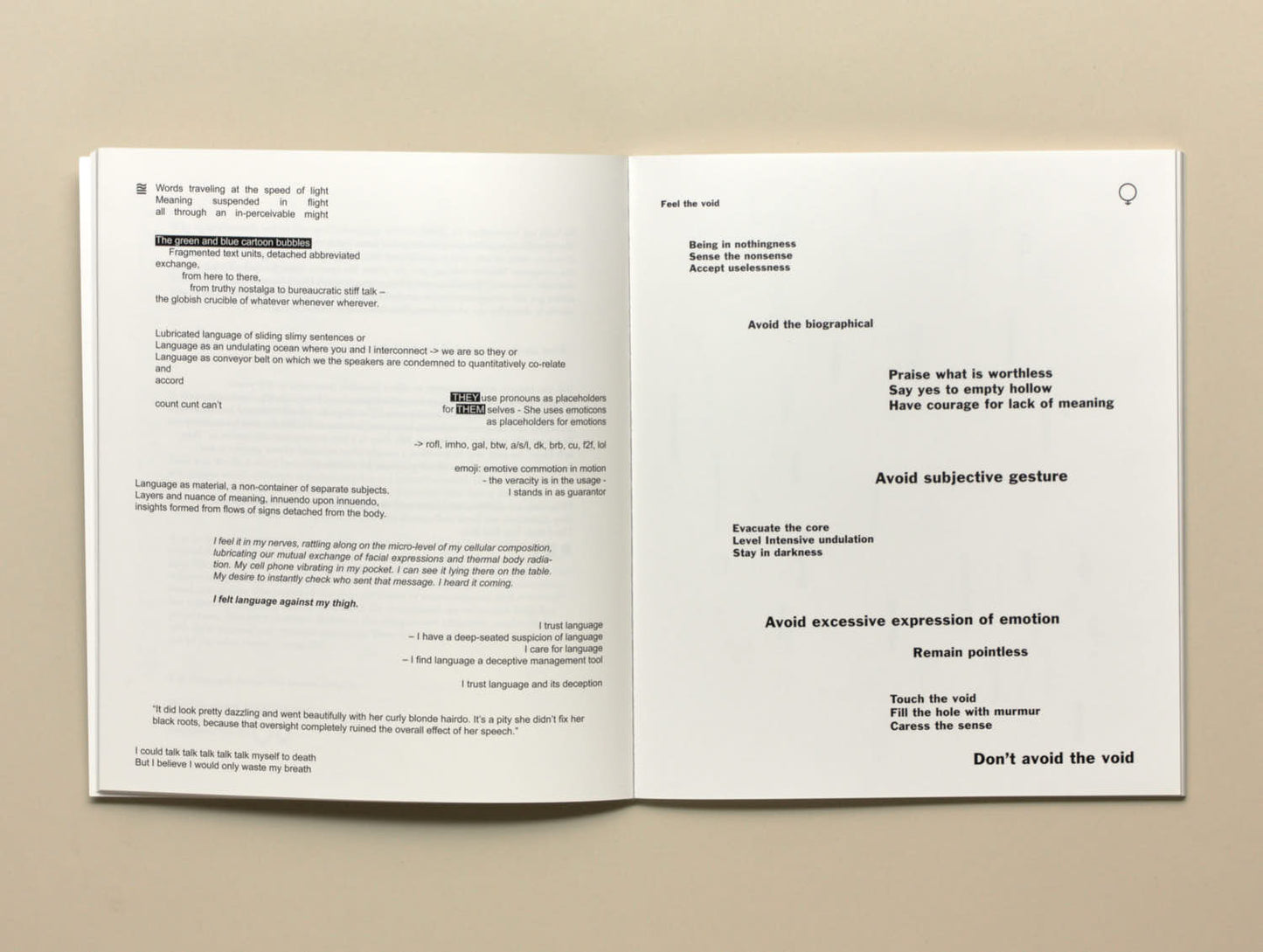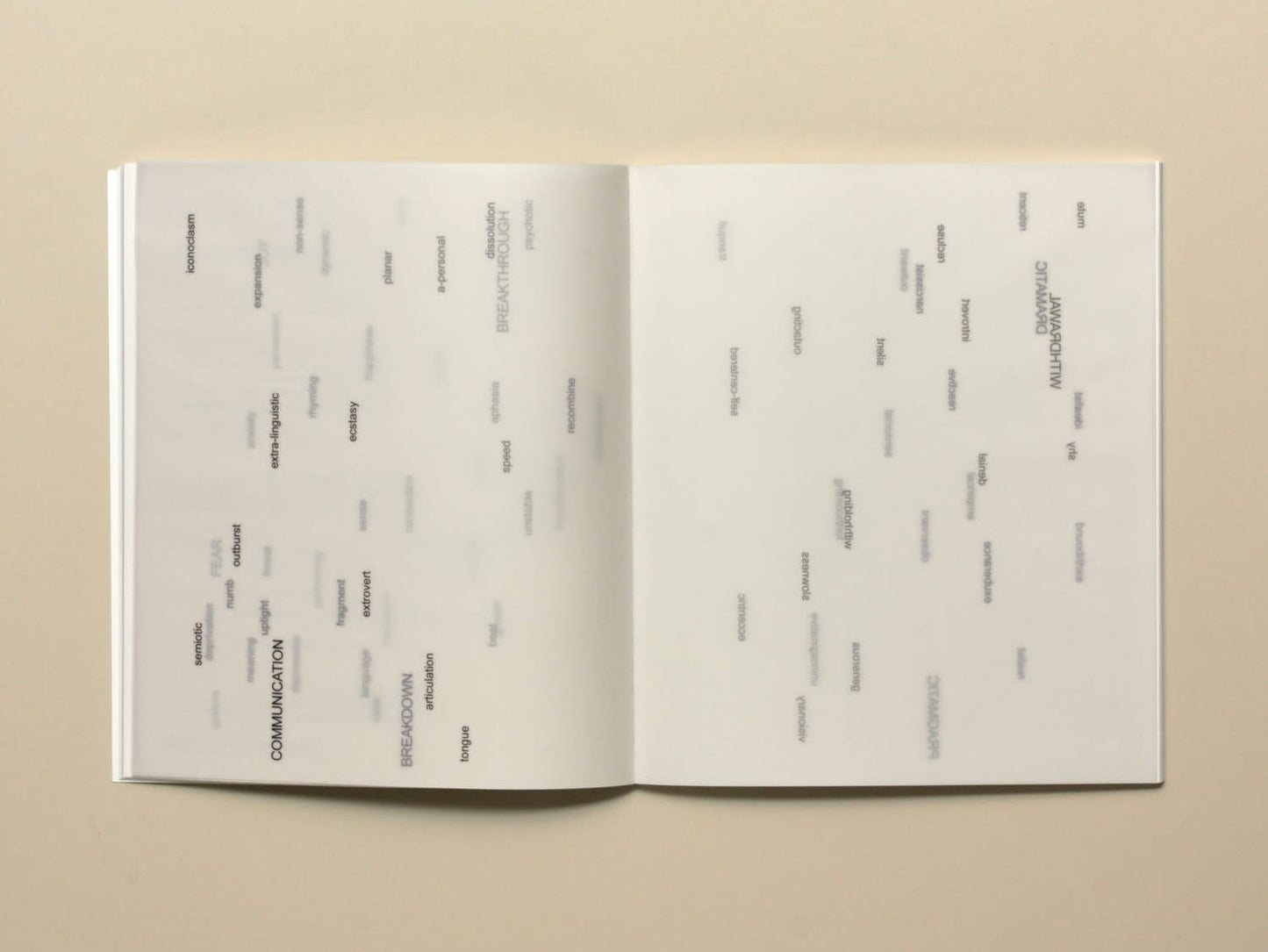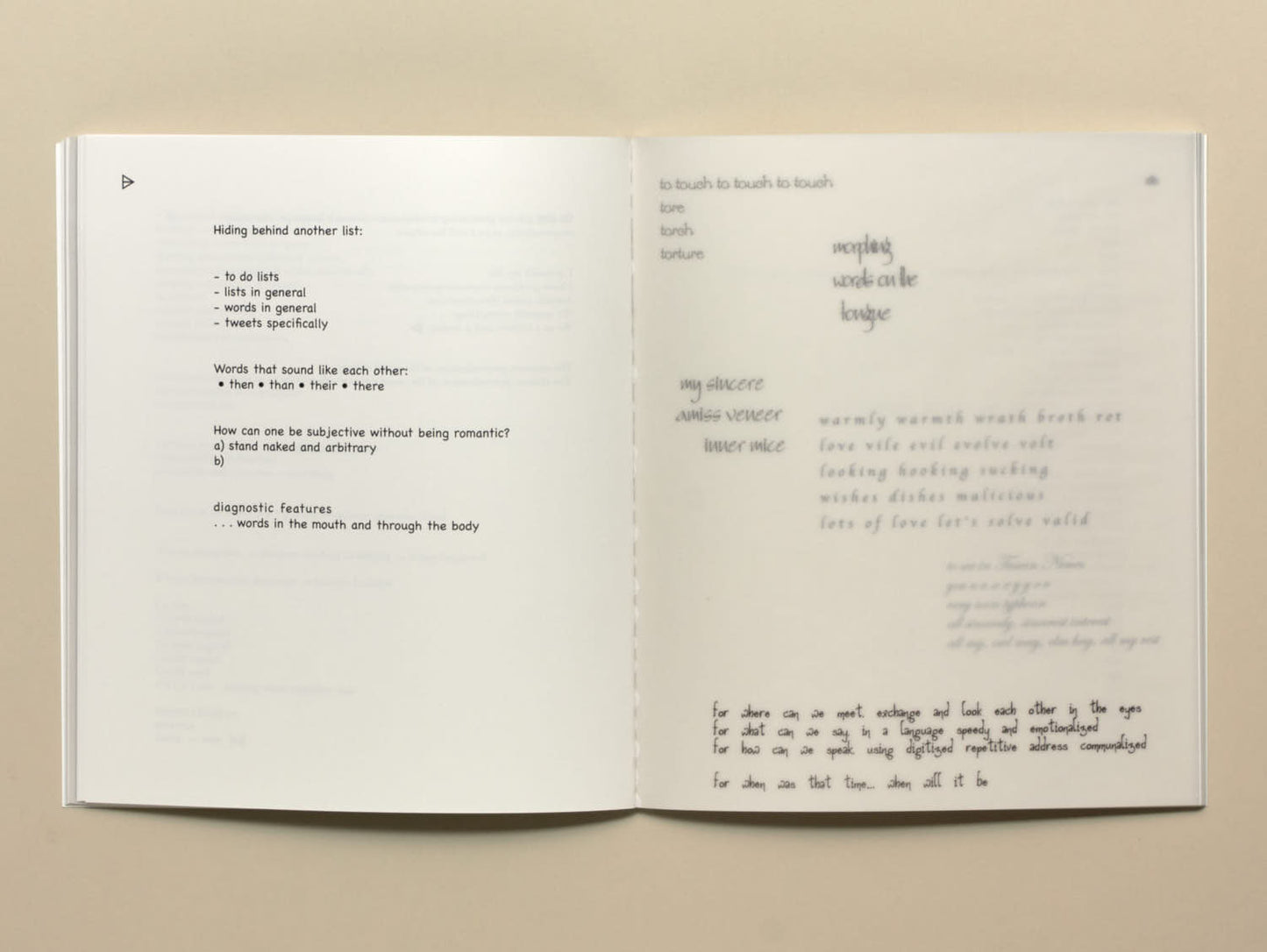Couldn't load pickup availability
COOP a-script is an artist book based on two performance scripts by Fia Backström, extending her exploration of visual and spoken language, global community, bureaucratic jargon, and mood and communication disorders. The first section of the book, “Aphasia as a visual way of speaking, on A-production and other language syndromes,” consists of a text written in four parts. When this work was performed at The Poetry Project in New York City, the artist organized the script across the venue’s floor and wall in a grid. To read the text, Backström moved her body across the floor, fragmenting the linear base structure of the text and inserting additional texts as her body made contact with the manuscript. Within this book, this process of fragmentation is preserved with passages linked by mathematical symbols to the second set of texts, which are placed at random within the four parts. This allows the reader to experience a fractured, non-linear reading of the script in line with the artist’s performance of the material.
The second script, “ME must be turned upside down to become WE,” serves as an epilogue to the first script, and is to be read by several performers “reading from beginning to end without assigned lines, in no particular turn, and sometimes simultaneously.”
COOP a-script has been developed graphically by Backström to reflect back to the sources and technologies used to create the work, which range from emails and iPhone notes to scientific reports. The book retains many elements of a hybrid style that culls from English and Swedish, Backström’s native language. This hybridization of language underscores the artist’s interest in the way that mistranslations and descriptive linguistics can operate as functional, evolving languages across geographic borders, media frames, and social communities.
Fia Backström is an artist based in New York. Since the late 90s, her text-based practice has included photography, performance, events, installation, and writing. In the early 2000s, Backström created some of her exhibitions as “a fia backström production,” where she included other artists’ works to create installations that played with group show conventions. Backström continues to comment on collective engagement—often through the photographic image and by incorporating other artists into her installations and performances—and explorations of conventions of display.
Edition of 1000









